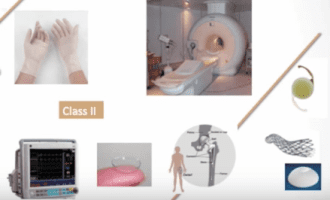
Medical Devices Misleading Ads. Some lawmakers, medical groups, and others are seeking restrictions on some direct-to-consumer advertisements for medical devices such as artificial knees and heart stents, claiming such ads mislead patients. The amount of medical device advertising directed to consumers on television or over the Internet reached an estimated $193 million last year and accounts […]

Medical Devices Misleading Ads. Some lawmakers, medical groups, and others are seeking restrictions on some direct-to-consumer advertisements for medical devices such as artificial knees and heart stents, claiming such ads mislead patients. The amount of medical device advertising directed to consumers on television or over the Internet reached an estimated $193 million last year and accounts for a very small fraction of consumer advertising for prescription drugs, according to consulting firm TNS Media Intelligence.
Some experts say that medical device advertising can have a greater influence on a patient’s well-being than a drug would because devices generally require surgery to implant and may remain inside the patient’s body for years. “The results are irreversible because you are kind of stuck with a device,” said Dr. Kevin J. Bozic, a professor of orthopedics at the University of California, San Francisco.
On Wednesday, the Senate Special Committee on Aging held a hearing about direct-to-consumer promotions of medical devices. Dr. Bozic, who was an author of a recent medical journal article critical of consumer advertising, is among those who testified. In a statement, the committee’s chairman, Herb Kohl—Democrat-Wisconsin—said he was holding the hearing because he felt that the U.S. Food & Drug Administration (FDA) might have to increase its scrutiny of such medical device promotions in the same way it had done for pharmaceutical advertisements. “The medical device industry is just beginning to get into the game,” Kohl said.
According to David Nexon, a senior official at Washington’s Advanced Medical Technology Association, the organization felt that current FDA rules governing direct-to-consumer advertising were adequate, adding that while an advertisement might stimulate a patient to ask a doctor about a device, the process of receiving one involves a discussion of its benefits and risks.
Not surprising given that Advanced Medical Technology is a trade group that represents medical device makers. Nexon says that, “You may take a pill because it doesn’t involve very much, but you don’t undergo surgery unless you think you have a serious need for it.”
Meanwhile, in 2007, medical device makers increased spending on direct-to-consumer advertising, nearly doubling the amount that was spent in 2005, according to data provided to the Congressional Research Service by TNS. Also, in the past three years, a variety of device makers have begun to implement advertisement campaigns. For example, Stryker has run ads for a ceramic replacement hip.
We, among others, have reported on this device and that patients are complaining about squeaks that are loud enough to be heard when patients walk and move about. Zimmer Holdings, another maker of orthopedics devices, has advertised a replacement knee created for women; heart device maker, Medtronic, has run consumer promotions about heart defibrillators.
An official of Consumers Union, the publisher of Consumer Reports magazine, was expected to testify that current rules requiring consumer drug advertisements be written in such a way as to provide a balance between a medication’s benefits and risks and to be extended to cover medical devices.
The personal injury attorneys at Parker Waichman LLP offer free, no-obligation case valuations. For more information, fill out our online contact form or call 1-800-YOURLAWYER (1-800-968-7529).


